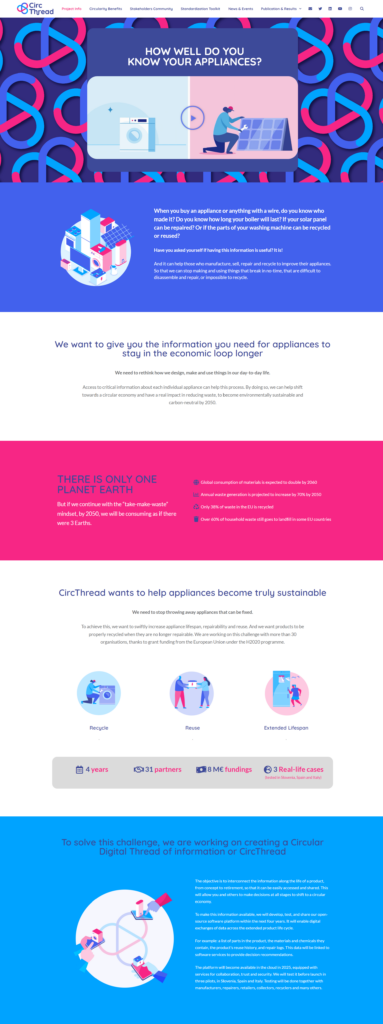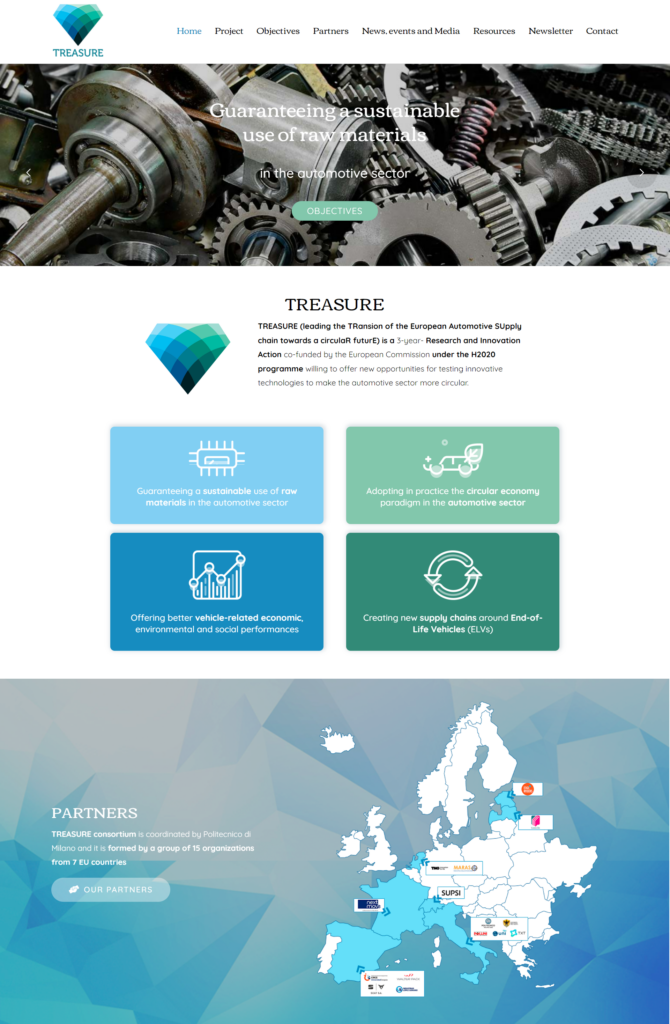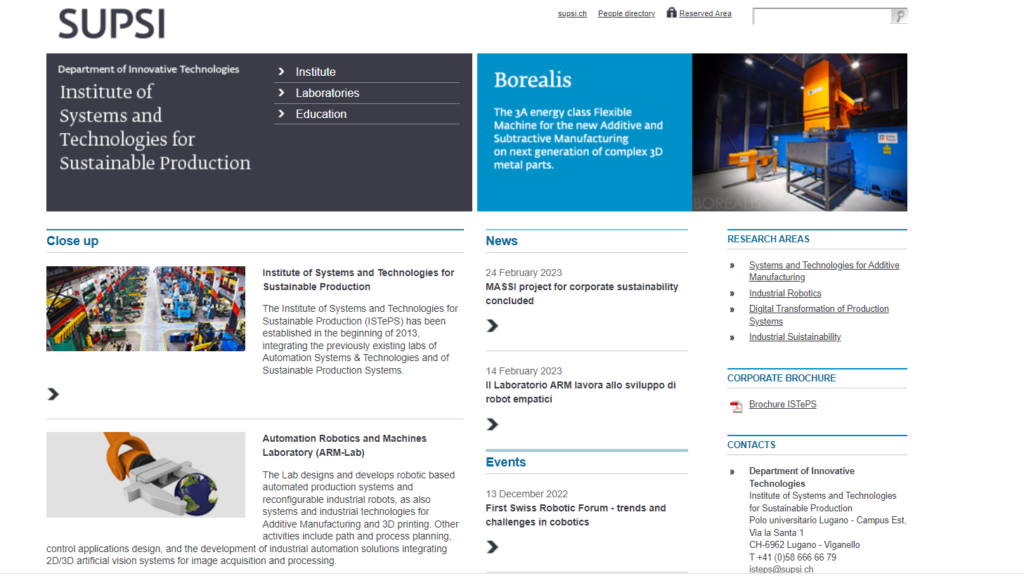In the context of the sustainability decision-making framework worked on in T3.2, CircThread has interviewed the partner SUPSI to clarify some issues raised in this task concerning work package 3: Circularity frameworks and economic, social, and environmental services.
How T3.2 activities contributes to the context of sustainability and circularity as drivers for strategic decisions?
The goal of this task is to develop an integrated Life Cycle Sustainability and Circularity Assessment (iLCS&CA) and advisory framework to support the evaluation of product environmental, social, economic and circular economy characteristics for product improvement and communication.
What are the main achievements obtained and challenges met in the development of the iLCS&CA framework?
First of all, it is useful to specify that the framework is constituted by a list of indicators and by methodologies for the aggregation/integration of the identified indexes. We identified a wide set of indicators including: 15 indexes for the environmental area based on the PEF methodology; the total costs calculated along the product’s life cycle phases with some financial KPIs for the economic area; and 84 indicators addressing the social area, addressing the various stakeholders indicated by the UNEP method. Moreover, various index aggregation frameworks have been identified via a comprehensive review of the literature to integrate all the sustainability areas in the evaluation and to better support the results interpretation.
Many are the challenges faced and addressed during the framework development. Let’s consider LCA and LCC, they are well acknowledged methodologies for the environmental and economic evaluation of product, but still oriented to linear cases (LCA) and not fully standardized in the CircThread industrial context (LCC). What about the evaluation of the social area that is still in its infancy, rich in methods, somehow also conflicting, but with scarce applications examples. Not to mention the integration topic that compared to the social evaluation is in an embryonic stage, with only one (almost failed) attempt to provide an SDGs oriented vision! In this field we had also an interesting discussion with ECOS who expressed their doubts about the maturity and the need of aggregate the indexes concerning the different areas of sustainability and circularity, opening a discussion to be further explore in the continuation of the project. In this articulated context, we take the opportunity to strengthen our competences, especially in the economic, social and integration fields, and at the same time contributing to the debate related to LCSA.
Even though the assessment framework development indeed absorbed the majority of our resources, we also have the occasion to have some reasoning on its applicability in the project use case and pilots, identifying the input requirements, and the potential visual dashboard formats for the assessment results communication and exploitation.

It seems that a single project could be dedicated to the topic!
Yes, this is definitely a broad topic! In fact, we found ORIENTING[1], which is a parallel European project with a very large part dedicated to LCSA methodological aspects. We found the connection with this project quite late in the task development, and we realized that we arrived at similar conclusions and choices even though, evaluating the application of the framework on the project context, we took our own decisions.
So, the framework is applicable only to CircThread?
No, in parallel we are also involved in the TREASURE[2] project in which we came to very similar conclusions, even though applied to a different sector: disassembly and recycling of electronic component of vehicles. For sure, some elements can be shared, then some specificities appear especially considering the application with pilots.

In this regard, what can you tell us about the most practical aspect? Have you considered the existing pilots in your investigation and for the obtained results evaluation?
We interact with pilot partners to validate some parts of our studies and results. For example, during a workshop held in a project general assembly partner have been considered in choosing the most appropriate social indicators for the project. Moreover, a survey has been arranged to understand the expectations and the related requests related to the output format of the information, in addition to the possibility of aggregation of information.
Moreover, an additional investigation on the needed data in input for the assessment has been started, that it will be clearly continued in the next task that sees us involved where the LCSA framework will be translated in software applications for the actual evaluation of product and processes impacts.
Are consumers ready for this kind of information?
In our task, Altroconsumo and OCU also investigate this aspect. A survey among more than 5000 consumers in Belgium, Italy, Portugal and Spain was circulated to collect the life cycle sustainability and circular economy information helpful for consumer purchasing and product use circular economy decisions.
For example, what has been inferred is: only 1 out of 5 consumers feel (very) knowledgeable about heating system products, compared to 1 out of 3 consumers regarding small and large appliances and high-tech devices. Some differences between the countries interviewed could lead to a diversification of ways and efforts to encourage consumers in each country.
Going a bit more towards what has more to do with our framework: the aspects of greatest interest to the consumer are energy consumption, expected life span, expected level of cost of use and maintenance, and easiness of repair; the latter two especially for large household appliance and heating systems. When choosing an appliance consumers compare the above aspects in case the appliance involves the use of water they are also interested in water consumption.

What about the next steps?
A stronger interaction with pilot is planned to better establish the information output format and the integration and to support the data gathering. Also, the indicators selection will be affected by the ability to collect data as much as possible in an automatic way.
The integration of the circularity aspect in our current framework is another task to be addressed in the following period as well as the translation of the methodology in the service to be integrated into the general project platform.
[1] This project has received funding from the European Union’s Horizon 2020 research and innovation programme under grant agreement No 958231. Website: https://orienting.eu/
[2] This project has received funding from the European Union’s Horizon 2020 research and innovation programme under grant agreement No 101003587. Website: https://www.treasureproject.eu/
Written by Deborah Leone (SUPSI)